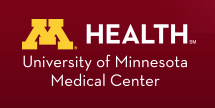Treatment of Graft Failure After Hematopoietic Stem Cell Transplantation
| Status: | Recruiting |
|---|---|
| Healthy: | No |
| Age Range: | Any |
| Updated: | 9/27/2018 |
| Start Date: | October 2014 |
| End Date: | July 2021 |
| Contact: | Timothy Krepski |
| Email: | tkrepsk1@fairview.org |
| Phone: | 612-273-2800 |
This is a guideline for the treatment of graft failure after hematopoietic stem cell
transplant (HSCT). This regimen, consisting of cyclophosphamide and fludarabine with low dose
total body irradiation (TBI) is designed to promote donor engraftment by day 42 after initial
graft failure.
The graft will consist of bone marrow or G-CSF mobilized peripheral blood from a
haploidentical related donor. The source of stem cells will be determined by the transplant
team based on factors such as patient's age, medical history, donor availability and will be
according to the current University of Minnesota Blood and Marrow Transplantation Program
selection guidelines.
transplant (HSCT). This regimen, consisting of cyclophosphamide and fludarabine with low dose
total body irradiation (TBI) is designed to promote donor engraftment by day 42 after initial
graft failure.
The graft will consist of bone marrow or G-CSF mobilized peripheral blood from a
haploidentical related donor. The source of stem cells will be determined by the transplant
team based on factors such as patient's age, medical history, donor availability and will be
according to the current University of Minnesota Blood and Marrow Transplantation Program
selection guidelines.
Inclusion Criteria:
- Patients with primary or secondary graft failure, as defined below, may receive a
second transplant:
- Primary graft failure is defined as not achieving an ANC ≥0.5x10^9/L for three
consecutive days by day 35 - 42 following the first transplant.
- Secondary graft failure is defined as achieving an ANC ≥0.5x10^9/L for three
consecutive days by day 35 - 42, but subsequently drops below 0.5x10^9/L without
recovery.
- Loss of chimerism is defined as achieving an ANC ≥0.5x10^9/L for three
consecutive, but with less than 10% CD15+ donor cells in the marrow or peripheral
blood.
- Recipients should have acceptable organ function defined as:
- Renal: creatinine < 2.0 (adults) and creatinine clearance > 30. For creatinine
clearance < 70, consultation with a BMT pharmacist is necessary for chemotherapy
dose adjustments.
- Hepatic: bilirubin, AST/ALT, ALP < 10 x upper limit of normal
- Cardiac: left ventricular ejection fraction > 40%
Exclusion Criteria:
- Uncontrolled infection at the time of transplant.
- Patients with Fanconi Anemia or other DNA breakage syndromes.
We found this trial at
1
site
2450 Riverside Ave
Minneapolis, Minnesota 55454
Minneapolis, Minnesota 55454
(612) 273-3000

Principal Investigator: Troy C Lund, MD, PhD
Phone: 612-273-2800
University of Minnesota Medical Center, Fairview Improving patients' lives drives the innovation that makes University...
Click here to add this to my saved trials